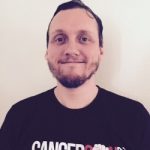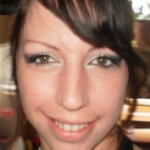Depression, Loss, Pain and Anger (Just a Few Friends Who’ve Joined The Party Since I’ve Fought Cancer)
May 26, 2015
By: Marianne Stephan
I haven’t written in almost six months. Maybe that is because I’ve lost my favorite editor.
Annie Goodman was my friend. She was also an incredible television producer, educator, comedian, public speaker, writer, and a list of countless other amazing things. She passed away on December 17, 2014 because of Stage IV Triple Negative Breast Cancer.
When the world lost Annie, I not only lost my friend, but the desire to write. And I was swallowed up into a horrible depression.
Depression is not something people like talking about – I certainly don’t. So I will start by telling you something I do like talking about – I am a Stage IV endometrial cancer survivor.
Yes, I like to talk about the fact that I am a gynecological cancer survivor. Because when I was diagnosed back in January 2012, I was embarrassed to talk about it. I think embarrassment goes hand in hand with a cancer survivor/fighter’s overall mental health. While we are talking about mental health, I also suffer from Post-Traumatic Stress Disorder (PTSD) and situational depression related to cancer.
It has been studied and cited by many cancer publications that many cancer fighters and survivors never seek professional mental health services for the exhaustive list of side effects, after effects, and/or any of a number of life, work, monetary, relationship, sexual, emotional, family, death, and social issues that arise.
Let that sentence take hold of you for a moment.
I wonder why there isn’t a specific term for cancer patients (whether in or out of treatment) “going postal,” because we could literally snap without proper help being given to us!
I was 32 years old when diagnosed, and in the three years and three months since, have experienced loss: that all-encompassing word.Loss of my fertility and the hope of ever bearing my own children, loss of friends known casually as well as some who were incredibly dear to me, loss of my hair the way it was, loss of my pre-cancer body with that 200-plus pound weight loss I worked so hard for and a fitness level I was achieving with such gusto, loss of days without chronic pain, and loss of being a member of the dating world with a freedom afforded to so many of my female peers. You know, the freedom when you’re not painted as “the sick one” or “the one who can’t have kids” or “the one with a lot of scars” or “the one who’s lost her breasts.”It makes you want to scream at the top of your lungs that you just want to have a normal love life too, all that crap aside!
The pain is sometimes too much to bear. There are days when I am taking a crowded New York City subway: it’s packed, I am standing, and I have people crammed around me. On days it’s that bad, my chemo and estrogen-blocker side effects really step up. My neuropathy flares up so it feels like I am getting stabbed in the bottom of both my feet. I have back pain every single moment of my life now – it will get especially bad when people are pushing up against me and my neuropathy is flaring. I am 36 years old and I don’t look sick, so no one is going to give me a seat. When you are trying to get to work or to an appointment for work, you don’t have the luxury of waiting it out or seeking another form of transportation for comfort. You simply deal with it and hope it’s over soon.
But some days you get really angry. Angry about being in pain. Angry about being pushed. Angry about people talking about nonsense. Angry because your life deals with hypercritical things like medications, doctor’s appointments, worry about getting sick again (whether mentally or physically, from cancer to a cold). Angry about losing friends, angry that at any time it could be you.
There’s fear of sexual dysfunction.The process of becoming a parent is difficult and expensive, and negotiating a relationship when one person is sick or has been sick adds a whole new dimension to things, not to mention a heap of stress!
Another unique challenge to us young adults who have faced cancer is that your “normal” friends are passing you by in life. We have the distinct “advantage” of getting cancer while we are also, to quote Matthew Zachary, “Getting Busy Living”.Cancer means a real upheaval of our lives while we are trying to work towards the usual accomplishments of school, career, relationship, family, etc.
Imagine dealing with all of these “normal” things and also dealing with a life-threatening illness. It’s exhausting! It’s overwhelming. Many of us need mental health services or at least support to talk with others so we aren’t stuck within ourselves.
Young adult cancer groups such as CancerFightClub, Stupid Cancer, and other general peer-support groups can definitely put you in touch with other young adults so you do not feel isolated. There are many disease-specific organizations as well as organizations that exist just so that we, as young adults, can get a break from our lives and cancers and get to be “normal” young adults for a little while. These are incredible for our collective mental health.
Taking advantage of resources like therapy (and if needed, medication) is especially helpful in dealing with the multitude of issues that we, as young adult cancer survivors and fighters, deal with. Many cancer centers employ psychiatrists, psychologists, and social workers trained to deal specifically with oncology patients. I know that many of my peers are worried about the costs associated with this; it is important to check to see what your cancer center provides for you. It is possible that mental health assistance will be covered without cost to you. Check your health insurance coverage, if all else fails. The more of us who speak out about the mental health implications of being a young adult cancer fighter and survivor with all the crap that goes with it, the better!
I was willing to talk to a therapist, and I had one before my diagnosis. I became involved with Stupid Cancer during the summer of 2013, nine months after I was awarded my cancer-free status. I went to their national conference called OMG!2014 in Las Vegas the following April. It was my first time attending such a large event for young adult cancer survivors, and Annie was my roommate. It was a truly awesome experience! The week the plane landed back in NYC, one of my “normal” best friends was diagnosed. I proceeded to have a meltdown, and in June completely flipped out on my oncologist. She told me to go back to therapy.
After Annie died, it all crumbled. I needed help. Because of my meltdown in June I was already in therapy, but I wasn’t getting any better. I wasn’t myself. We talked about the possibility of medication: an antidepressant. I spoke with my neurologist about this as well – I had been extremely worried about going on medication. I was very comfortable with being in therapy and being open about it. I was less at ease with going on an antidepressant. I was afraid that it would change me. I gave my family and friends a heads up that they should say something if they noticed I wasn’t acting like myself. My neurologist started me on a small dose, and right away a cloud lifted. I didn’t feel like a zombie anymore!It was the most amazing feeling. I was anticipating a horror show, but instead I got such relief. I wish I wouldn’t have been so scared of it before. I am under the care of very smart people and I am monitored. I had legitimate concerns but if something had gone amiss, one of my doctors would have intervened, that is their job; that is why I chose to trust them with my care. The combination of therapy and medication has been the most life-changing and helpful decision for me. It is not for everyone, since everyone’s situation is different, but this is what works for me now. I am not planning on staying on my antidepressant forever, and that’s not my doctor’s plan either, but it is what I need now. And I am okay with that.
I may not have Annie back (or Seporah, another friend of mine who passed away while I have been on the antidepressant, it truly helped) but I carry them with me and I am living my life again. Depression steals part of you away from yourself. You can be alive but not be living. I didn’t fight back in 2012 to have a life like that. My friends wouldn’t want me to have a life like that in their absence. Being mentally healthy is being alive. I am alive.





